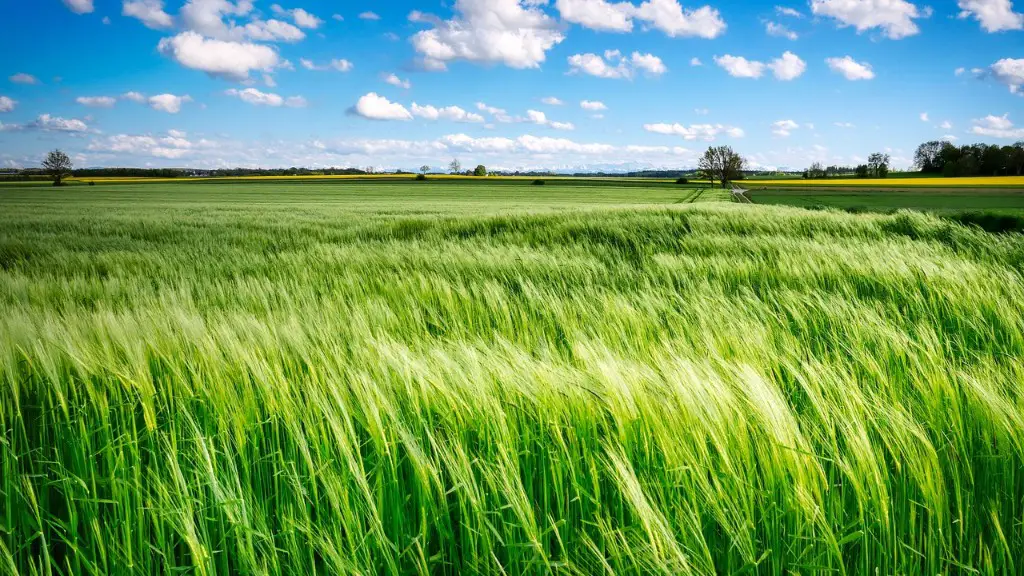Modern agriculture relies heavily on fossil fuels in a variety of ways. Fossil fuels are used to power vehicles, pumps, and other machinery and equipment used during the farming process. They are also used to create pesticides, herbicides, and other chemicals used in the crop production process. Additionally, they are used to create fertilizers and other necessary agricultural inputs, such as growth stimulants. Finally, fossil fuels are used to produce energy that is used to power irrigation systems, grain dryers, and agricultural processing plants. While the production of these fuel inputs has a large environmental impact, they still play an important role in modern agricultural methods.
Fossil fuels as an energy source
Fossil fuels, such as coal and petroleum, are used to produce energy for use in modern agricultural practices. This energy is used to power machinery and equipment, such as tractors, combine harvesters, and pumps, which are all necessary for efficient crop production. Additionally, this energy is used to power irrigation systems, which are essential for delivering water to crops in order to increase their productivity. Finally, fossil fuels are used to power grain dryers, which are necessary for removing moisture from grain and other products prior to storage and sale.
Fossil fuels for chemical inputs
Fossil fuels are also utilized to create chemical inputs, such as fertilizers, herbicides, and pesticides, which are all necessary to ensure productive crop yields. Fertilizers provide essential nutrients that help crops grow and provide ample yields, while herbicides and pesticides help to control weeds and pests that can damage crops. Additionally, fossil fuels can be used to create growth stimulants, which can help crops grow more quickly and efficiently.
Environmental impacts of fossil fuel use
The use of fossil fuels in modern agriculture has a significant environmental impact. Most notably, burning of fossil fuels releases harmful pollutants into the environment, such as carbon dioxide, which contributes to global warming. Additionally, the production of for chemical inputs, such as pesticides and herbicides, can release harmful chemicals into the environment. Finally, the production of fertilizers can release excess nitrogen and other nutrients that can leach into groundwater and surface water, leading to eutrophication.
Reducing dependence on fossil fuels
In light of the environmental impacts associated with the use of fossil fuels in modern agriculture, it is important to consider ways to reduce our dependence on them. There are a variety of methods that can be used to reduce the reliance on fossil fuels, such as the use of alternative energy sources, the adoption of no-till farming practices, and increased adoption of organic practices. Additionally, improved use of fertilizers, herbicides, and pesticides can help reduce emissions associated with their production and use.
Conclusion
In conclusion, fossil fuels are a necessary input in modern agriculture, and their use has a significant environmental impact. While it is important to consider ways to reduce our dependence on them, they still play an important role in modern agricultural practices. Therefore, it is important to consider ways to mitigate their environmental impacts, while still utilizing the benefits they provide.

